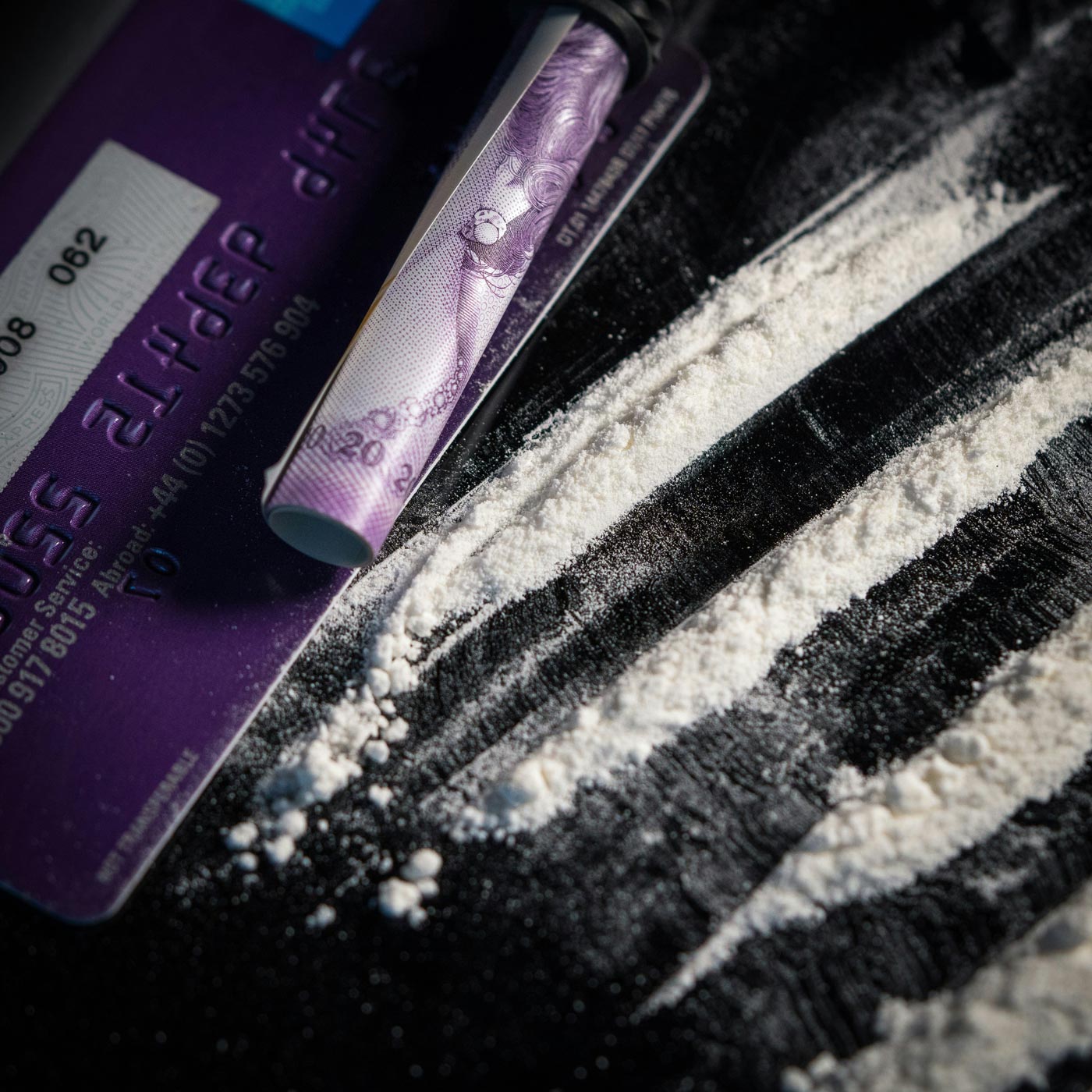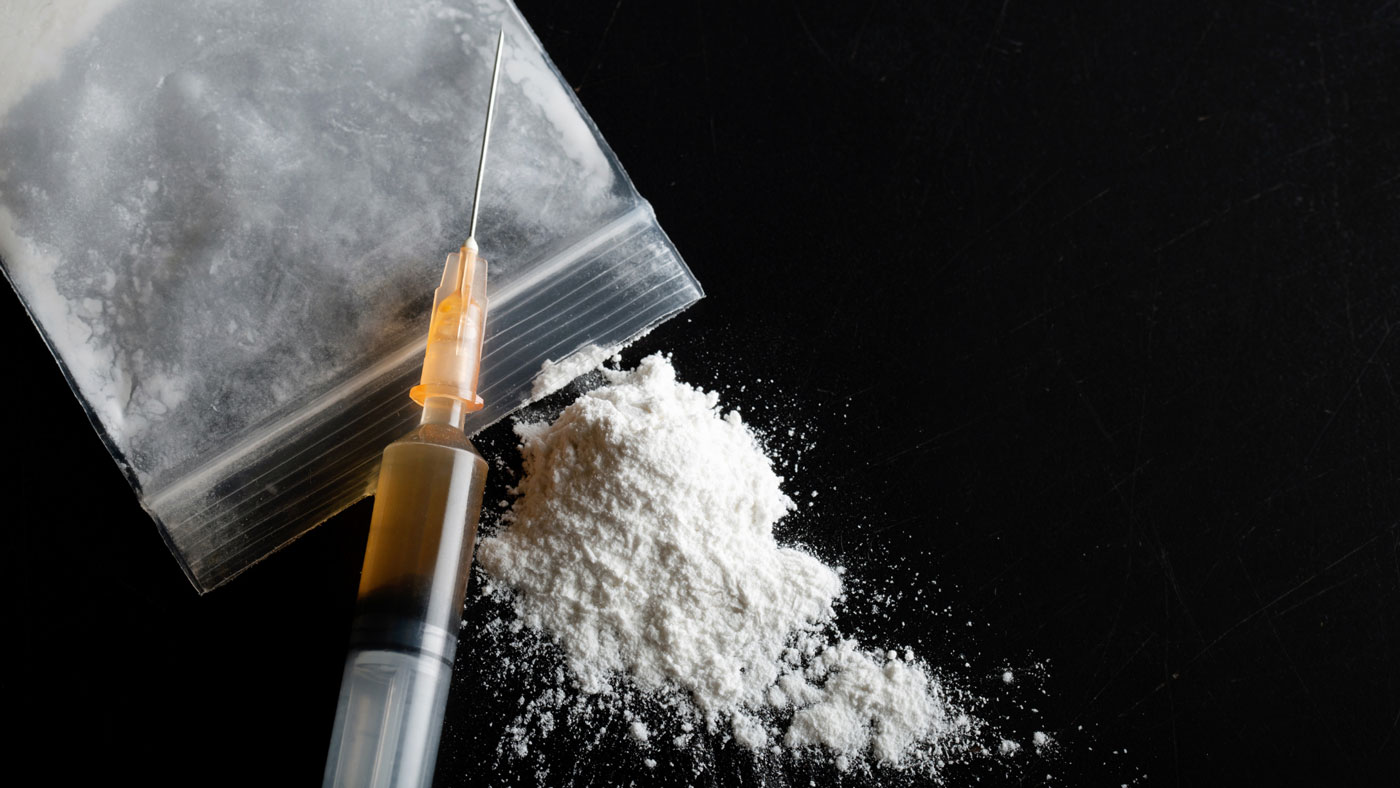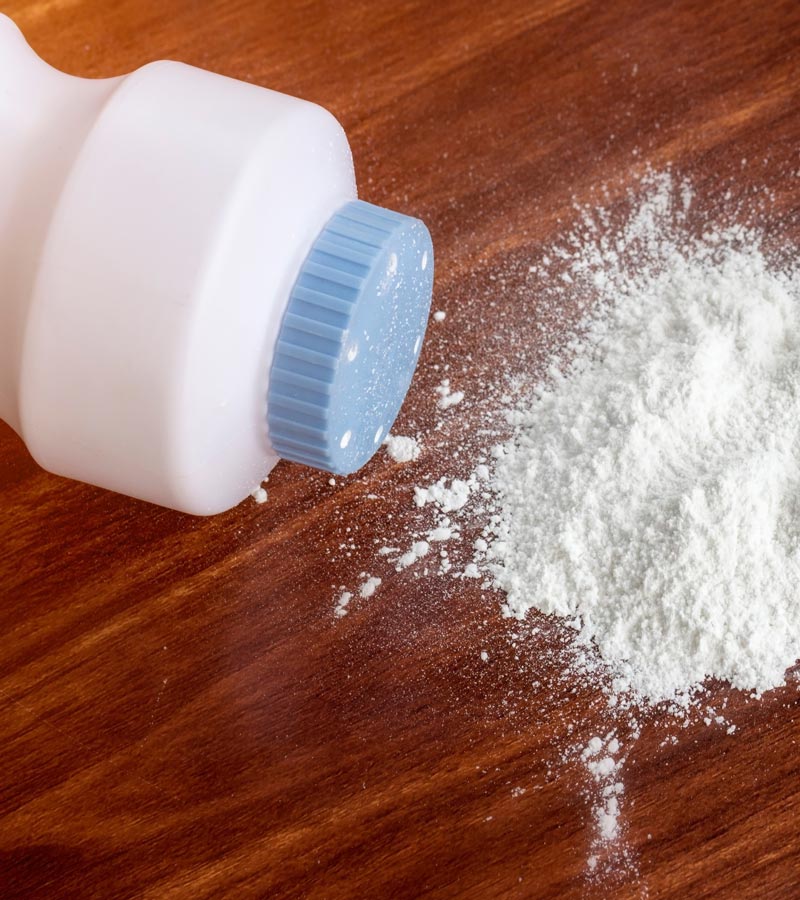Cocaine is a powerful and extremely addictive stimulant drug that activates the brain’s reward center, encouraging misuse. Though it’s often seen as a casual party drug, cocaine can have serious long-term effects and risks.

There Is A Better Way To Live. It's Time To Get The Help You Deserve.
Statistics On Cocaine Use, Misuse, And Addiction
Among people aged 12 or older in 2021, 1.7% (4.8 million people) reported using cocaine in 2021.[2] About 0.5% (1.4 million people aged 12 or older) had a cocaine use disorder in the past 12 months in 2021.[3] About 24,486 people died from an overdose involving cocaine in that same year.[4]

Effects Of
Cocaine Abuse
Cocaine has near-instant effects. Small amounts can lead to:
- Euphoria
- Alertness
- Talkativeness
- Hypersensitivity
- Insomnia
- With prolonged use, cocaine can cause:
- Cardiovascular damage
- Gastrointestinal issues
- Addiction
Can You Overdose on Cocaine?
Cocaine carries a high risk of overdose, which can occur with prolonged use or even with first-time use.
Signs and Symptoms of Cocaine Overdose
The signs and symptoms of a cocaine overdose can include:
- Paranoia
- Raised body temperature
- Increased heartbeat
- Elevated blood pressure
- Panic
- Hallucinations
- Difficulty breathing
- Unconsciousness
What to do if you suspect someone is overdosing on cocaine:
If you think someone is experiencing a cocaine overdose, call 911 immediately. Prompt medical attention may be able to reverse a cocaine overdose. Stay with the person until help arrives.
Dangers of Long-Term Cocaine Use
Cocaine causes a rapid and intense euphoria, but it fades within minutes to an hour. People may use cocaine repeatedly to maintain their high, leading to tolerance, dependence, and an greater risk of addiction or overdose.
Mixing Cocaine with Other Drugs
Cocaine may be used in combination with other drugs, such as stimulants like amphetamine, alcohol, or synthetic opioids. Mixing cocaine with stimulants compounds the stimulant effects, leading to potential strain on the heart and other organ systems.
Combining cocaine with depressants like opioids or alcohol doesn’t “cancel out” the effects. Instead, it can cause unpredictable and dangerous effects that may be worse than either drug alone.
Cocaine Addiction And Abuse
Cocaine addiction is officially known as a stimulant use disorder in the Diagnostic and Statistical Manual of Mental Disorders, Fifth Edition (DSM-5). The criteria for a stimulant use disorder includes:
- Using cocaine more frequently or in higher doses than intended
- Attempting to reduce or stop cocaine use without success
- Spending an inordinate amount of time obtaining, using, or recovering from cocaine
- Experiencing intense cravings
- Using cocaine despite problems with interpersonal relationships
- Failing obligations at work, home, or school
- Abandoning hobbies or activities for cocaine use
- Developing a tolerance for cocaine
- Experiencing withdrawal symptoms when stopping or reducing cocaine use
Is Cocaine Addictive?
Cocaine is extremely addictive because of its effects on the brain. The drug acts on the reward center and stimulates the production of dopamine, a neurotransmitter linked to pleasure, encouraging more cocaine use. Over time, this leads to tolerance and addiction that may require cocaine rehab.
How Addictive is Cocaine?
Cocaine is one of the most addictive drugs because of its rapid and potent euphoria that reinforces repeated use.
Signs of Addiction to Cocaine
It’s important to know the cocaine addiction symptoms to get help for yourself or a loved one. These include:
- Constant runny nose or congestion
- Dilated pupils
- Anxiety
- Paranoia
- Weight loss
- Tremors and muscle twitches
- Changes in sleep patterns
- Changes in diet
- Nausea and stomach pain
- Vertigo
- Paranoia
- Drug paraphernalia
- Depending on method of use, track marks or burns on the fingers or lips
Cocaine Addiction And
Mental Health
Cocaine addiction can exacerbate existing mental health conditions like bipolar disorder, anxiety disorders, and psychosis. Some of the long-term effects of cocaine include mental health symptoms like anxiety, mood swings, aggression, paranoia, and irritability.


Cutting Agents Used For Cocaine
Cocaine may be cut with other substances to increase bulk and profits, such as flour, cornstarch, or talcum powder. It may be cut with other drugs to improve potency as well, such as synthetic opioids or amphetamine.
Cocaine Addiction Treatment
Cocaine addiction treatment is individualized and comprehensive. The cost, length, and process can vary according to your treatment plan, cocaine rehab facility, and other factors.
Cocaine Addiction Treatment Levels of Care
Addiction is complex and requires tailored treatment. There are several levels of care for how to treat cocaine addiction, including:
- Medical detox: Medical detox is the initial stage of treatment to help with the withdrawal symptoms from stopping cocaine use. A medical team monitors your health and offers support to keep you as safe and comfortable as possible.
- Inpatient cocaine rehab treatment: Residential cocaine rehab addiction treatment is the most intensive option with 24/7 supervision and support in a residential setting.
- Outpatient treatment: Outpatient treatment offers flexibility with schedule treatment sessions that allow you to continue with recovery while balancing your other responsibilities.
- Aftercare: Once treatment is complete, aftercare offers long-term support resources to help you transition back into everyday life.
Therapies Used in Cocaine Addiction Treatment
Regardless of the level of care, cocaine addiction treatment may include a range of therapeutic modalities to address the underlying causes of addiction. These may include:
- Cognitive behavioral therapy
- Somatic experiencing
- Experiential therapy
- Nutritional counseling
- Group therapy
- Eye movement desensitization and reprocessing (EMDR) therapy
- Outdoor recreation
- Nutritional counseling
Co-Occurring Disorders
Co-occurring disorders refer to a substance use disorder and mental health disorder that occur simultaneously. These conditions are complex and require integrated treatment to be successful, rather than individual treatments.
Cocaine addiction often co-occurs with borderline personality disorder, antisocial personality disorder, depression, anxiety, and attention deficit hyperactivity disorder (ADHD).
How to Find Cocaine Addiction Treatment in Orange County
If you’re looking for cocaine addiction treatment for yourself or a loved one, begin by speaking to your primary care provider or insurance company for specific cocaine abuse treatment programs or a cocaine detox center. SAMHSA also offers a Behavioral Health Services Locator tool to find local treatment centers.
When you’re evaluating your options, make sure to check reviews and testimonials to learn about other people’s experiences and see if the facility is the right fit for you.
Learn More About Our Programs
Cocaine Detox and Withdrawal Management
Cocaine withdrawal is not usually life threatening, but it can be extremely uncomfortable for several days or weeks. Because of this, medical detox is often the first step to ensure you’re safe, comfortable, and supervised to reduce the risk of relapse or complications.
Frequently Asked Questions
How Long Does the High from Cocaine Last?
Cocaine typically produces a short-lived high, though different methods of use can have different durations. Most cocaine euphoria lasts around 15 to 30 minutes.
Does Cocaine Have Medical Uses?
Cocaine was historically used as a local anesthetic, but there are now safer alternatives that are used in medical settings that don’t carry such a high potential for abuse and addiction. Nearly all current cocaine use is illicit.
What Are the Available Treatment Options for Cocaine Addiction?
Addiction is a complex disease with many contributing factors, so no two cocaine addiction rehab programs are alike. Cocaine addiction treatment options are always tailored to the individual based on their substance use, medical, and mental health history, goals, and other factors.
Sources
[1] Key substance use and mental health indicators in the United … – samhsa. (n.d.-a). Retrieved from https://www.samhsa.gov/data/sites/default/files/reports/rpt35325/NSDUHFFRPDFWHTMLFiles2020/2020NSDUHFFR1PDFW102121.pdf on 2023, November 20.
[2] U.S. Department of Health and Human Services. (2023a, February 13). What is the scope of cocaine use in the United States?. National Institutes of Health. Retrieved from https://nida.nih.gov/publications/research-reports/cocaine/what-scope-cocaine-use-in-united-states on 2023, November 20.
[3] U.S. Department of Health and Human Services. (2023a, February 13). What is the scope of cocaine use in the United States?. National Institutes of Health. Retrieved from https://nida.nih.gov/publications/research-reports/cocaine/what-scope-cocaine-use-in-united-states on 2023, November 20.
[4] U.S. Department of Health and Human Services. (2023a, February 13). What is the scope of cocaine use in the United States?. National Institutes of Health. Retrieved from https://nida.nih.gov/publications/research-reports/cocaine/what-scope-cocaine-use-in-united-states on 2023, November 20.

